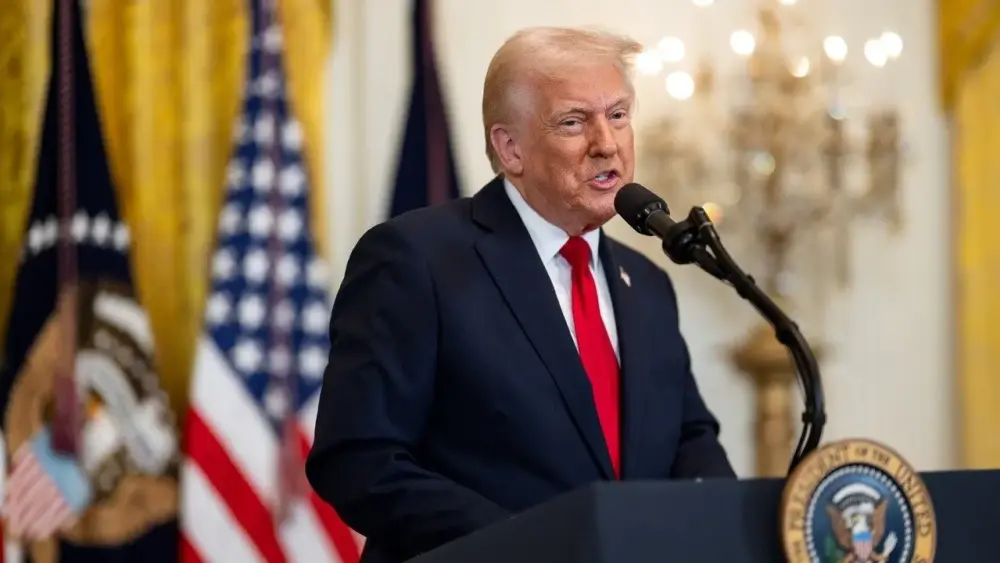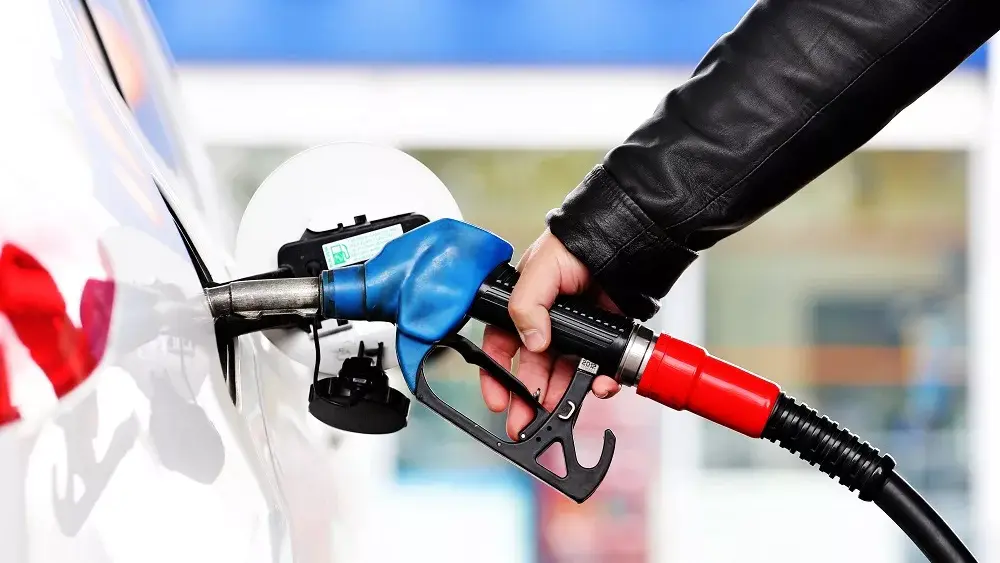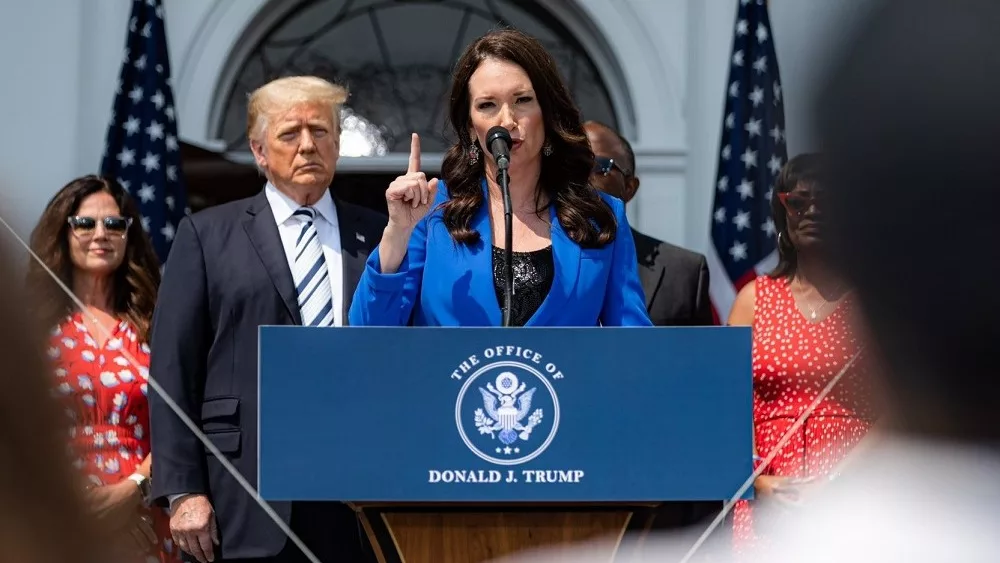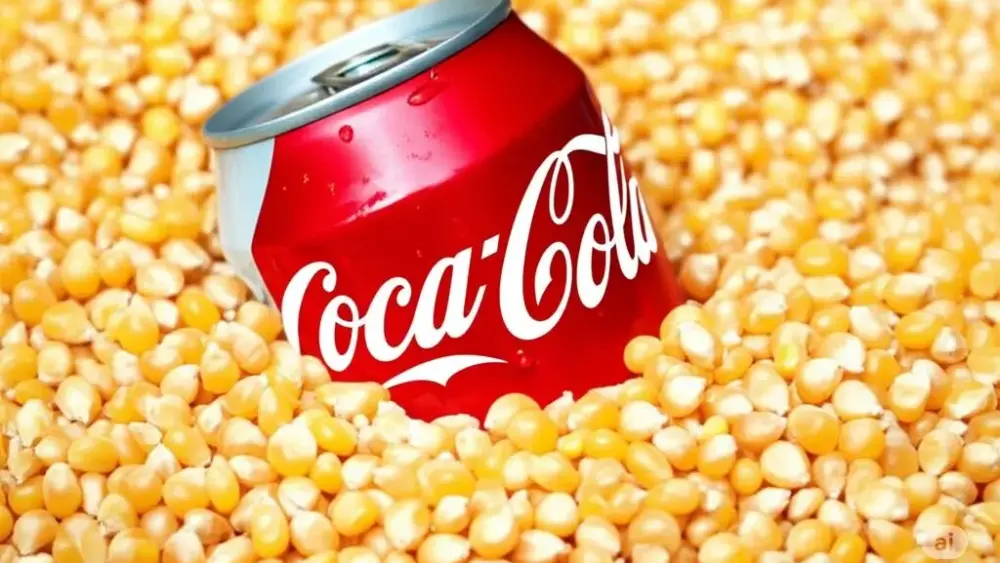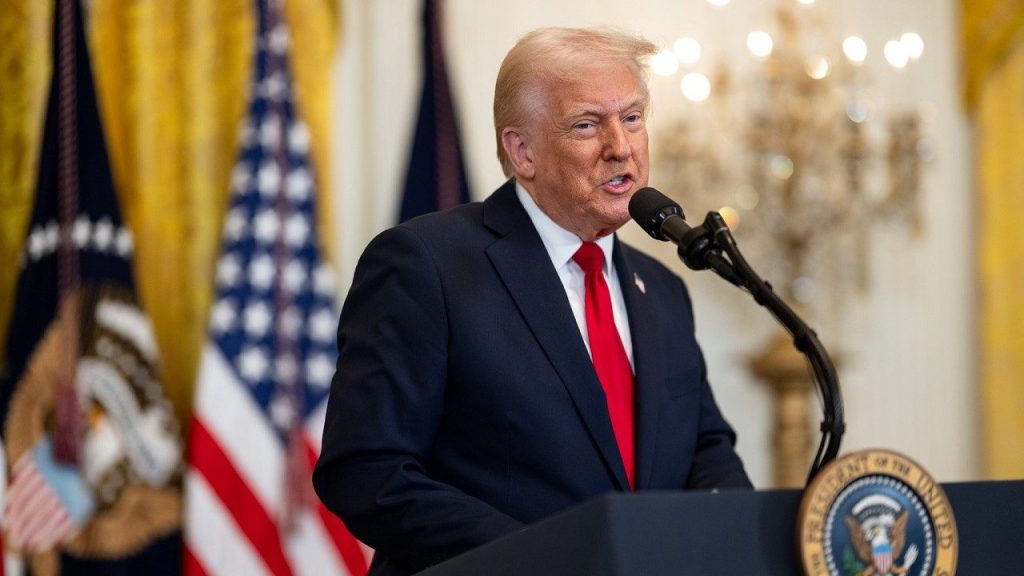
Following the criticism that President Trump has received for his plan to buy beef from Argentina in order to lower beef prices, he responded by saying that cattle ranchers “don’t understand” that they’ve benefited from his tariff strategy, adding that they “have to get their prices down.”
“The Cattle Ranchers, who I love, don’t understand that the only reason they are doing so well, for the first time in decades, is because I put Tariffs on cattle coming into the United States, including a 50% Tariff on Brazil. If it weren’t for me, they would be doing just as they’ve done for the past 20 years — Terrible! It would be nice if they would understand that, but they also have to get their prices down, because the consumer is a very big factor in my thinking, also!” Trump posted on Truth Social on Wednesday afternoon.
After Trump’s comments were posted on Truth Social, the cattle markets closed sharply lower with December Live Cattle falling $5.60, while November Feeder Cattle hit limit losses by dropping $9.25. The limits will expand to $13.75 beginning on Thursday.
Trump’s plan to increase imports of beef from Argentina comes after reports that he has recently offered Argentina a $20 billion economic bailout as a show of support to Argentina’s President Javier Milei.
“We would buy some beef from Argentina,” he told reporters aboard Air Force One during a flight from Florida to Washington. “If we do that, that will bring our beef prices down.”
Colin Woodall, CEO of the National Cattlemen’s Beef Association (NCBA), told Hoosier Ag Today on Monday, “We’re extremely disappointed with the President’s comments and his approach. [The U.S.] has the highest quality beef that’s ever been produced in the history of this industry. We are finally get paid for that quality, and in essence, the President basically told us to go pound sand.”
In response to Trump’s Truth Social post on Wednesday, Woodall released a statement saying that his organization, “cannot stand behind the President while he undercuts the future of family farmers and ranchers by importing Argentinian beef in an attempt to influence prices. It is imperative that President Trump and Secretary of Agriculture Brooke Rollins let the cattle markets work.”
Woodall also expressed concern that the increased imports of Argentine beef would also bring an increased risk of foreign animal disease.
“Argentina is a nation with a long history of foot-and-mouth disease (FMD), and USDA has not completed the necessary steps to ensure Argentina can guarantee the safety of the products being shipped here, further endangering America’s cattle herd,” said Woodall.
Some critics of President Trump’s plan say that the recent rise in high beef prices are a result of a lack of transparency and competition in the meat-packing chain, and that prices are being set by the largest U.S. meat packers, which are concentrated in a few major companies, often called the “Big Four”: Tyson Foods, JBS USA, Cargill Meat Solutions, and National Beef Packing. According to USDA, those four large firms handle 85 percent of all steer and heifer purchases and 67 percent of all hog purchases.
Zippy Duvall, President of American Farm Bureau Federation, also responded to Trump’s Truth Social post by saying, “Farm families are no different from other American families. We feel the impact of higher grocery costs, but don’t get to set the prices. Meanwhile, farmers are suffering through an economic storm – expenses remain high, and cattle farms have been decimated by years of low prices, drought and the threat of the New World screwworm. They are just beginning to experience a fragile recovery.
“This is a pivotal moment for America’s cattle farmers as they make decisions whether to restock their pastures. Farmers know America’s families prefer to buy U.S. beef. If expanded imports push farmers deeper into the red, we face the unintended consequence of increasing reliance on other countries for our food and weakening our ability to rebuild a strong American herd,” said Duvall.


